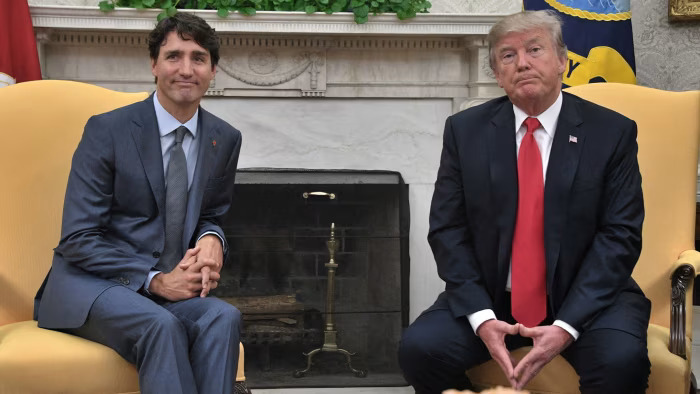Trump Advisor Proposes Canada’s Removal from Five Eyes: Security Experts Warn of Consequences
International International NewsPosted by NewAdmin on 2025-02-26 08:45:45 |
Share: Facebook | Twitter | Whatsapp | Linkedin Visits: 95

The Five Eyes (FVEY) is a longstanding intelligence-sharing alliance comprising the United States, Canada, the United Kingdom, Australia, and New Zealand. Established during World War II, it remains one of the most effective intelligence collaborations globally, exchanging critical security information among its members.
Recently, Peter Navarro, a top advisor to former US President Donald Trump, has reportedly proposed expelling Canada from the alliance. According to a Financial Times report, Navarro suggested the move as part of Trump’s broader strategy to pressure Canada, whom he allegedly sees as a potential “51st US state.” However, Navarro later denied making such claims, calling them "crazy stuff" and emphasizing that US national security would never be jeopardized with an ally like Canada.
The suggestion to remove Canada from Five Eyes has sparked significant concern among intelligence officials. Dennis Wilder, a former CIA official, warned that disrupting the alliance would weaken US security and be welcomed by adversaries like Russia, China, Iran, and North Korea. Another key figure, Steve Bannon, Trump’s former strategist, opposed the idea, stating that Canada has historically been one of the US’s strongest allies and plays a crucial role in intelligence gathering, particularly in monitoring Chinese activities in the Arctic.
The potential removal of Canada could destabilize the Five Eyes network, as intelligence-sharing is highly intricate. While Canada and New Zealand contribute less intelligence compared to the US, UK, and Australia, their presence strengthens global security coordination. One critical aspect of the Five Eyes alliance is Pine Gap, a satellite intelligence station in Australia, which plays a key role in tracking Chinese activities. The broader US-Canada relationship has been under strain since Trump’s return to office. Alongside discussions about removing Canada from Five Eyes, the US has announced 25% tariffs on Canadian imports. Canadian Prime Minister Justin Trudeau, who is stepping down on March 9, acknowledged these tensions and even admitted that Trump’s annexation rhetoric is a real threat.
Search
Categories
Recent News
- A Son's Burden: Healthcare Woes in Madhya Pradesh
- Hyderabad Tragedy: Tech Industry Stress Claims Another Life
- Gang-Rape and Social Media: A Dark Intersection in Odisha
- Tragic Discovery at Ranchi Construction Site
- AI Assistant's Unpredictable Behavior Raises Concerns
- Andhra Pradesh's Industrial Renaissance: Naidu's Vision for Nellore
- Pakistan's Security Crisis: Rebels Outgun the Military
- The Sun's X8.3 Flare: Unveiling the Power of Solar Storms
Popular News
- Navigating IPO Market Dynamics Amid Volatility and Regulatory Changes
- Massive Worldwide Microsoft Outage Disrupts Multiple Sectors
- Panjapur Bus Stand to Reshape TNSTC Routes
- తెలుగుదేశం పార్టీ - పేదరికాన్ని నిర్మూలించడంలో వాగ్దానం
- Universities Embrace Remote Learning Technologies Amidst Ongoing Pandemic